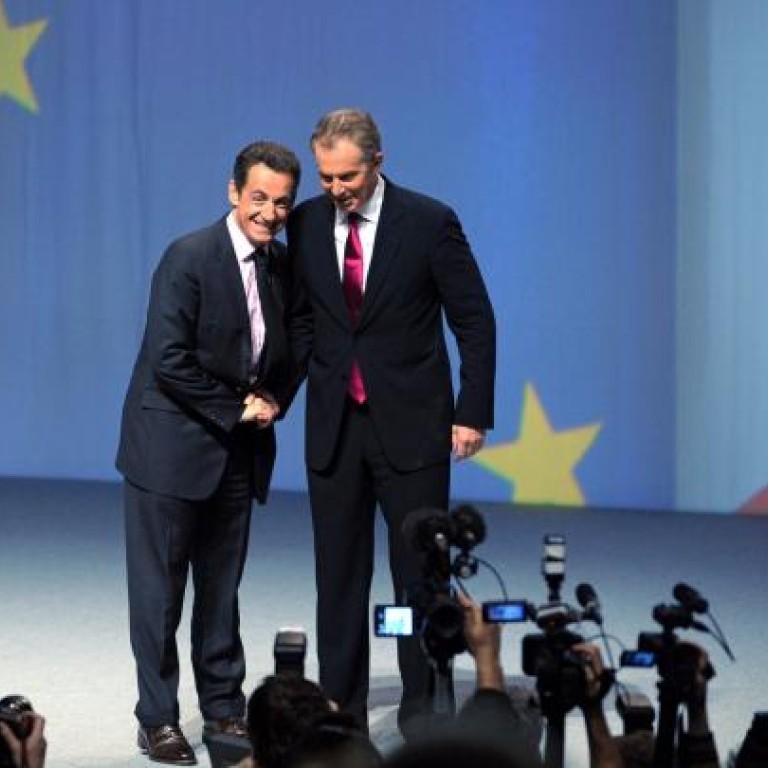
The Week Explained: politicians turned businessmen
News that the former British prime minister Tony Blair set up a meeting to help the Hong Kong-listed commodities conglomerate Glencore secure a US$80 billion merger with Xstrata offered a timely reminder of the role former political leaders play in the business world.
Blair, who left office at a young age, seems determined to make use of his contacts and former position. He has established a company for this purpose, which mixes public service activity (notably a role in Middle East peace negotiations) with business contracts including a lucrative job as an adviser to the investment bank J.P. Morgan.
Reports abound that his old friend Nicolas Sarkozy, the former French president, is also seeking to cash in, first in an advisory role at J.P. Morgan's rival, Morgan Stanley, with other jobs to follow.
One company stands head and shoulders above all others in seeking out former political leaders and putting them to work for corporate interests. This is the US-based Carlyle Group, which specialises in private equity and provides a range of advisory services.
Among those who have taken the Carlyle dollar are former US president George Bush (senior), former British prime minister John Major, two former Thai prime ministers, Anand Panyarachun and Thaksin Shinawatra, and former Philippines president Fidel Ramos. Its list of other retired ministers is legendary. Carlyle, which owns the consulting firm Booz Allen Hamilton whose main client is the US government, is well noted for its deep connections in government.
Meanwhile, a clutch of former government leaders has faced even more severe criticism for their business activities since leaving office. Former Canadian prime minister Brian Mulroney was especially active on the business front following his departure from office and then became embroiled in controversy over how his influence was used to obtain contracts during his time in office.
A similar controversy, albeit to a lesser degree, has dogged the former Australian prime minister Bob Hawke since leaving office when he embraced a number of Hong Kong and Chinese businessmen.
However, even assuming that all subsequent business activities are above board, a number of political leaders have studiously eschewed getting involved with business after stepping down. They do so to ensure there is no hint of suspicion surrounding their post-retirement activities. Instead of getting involved in business, they tend to cash in by writing biographies and joining the upper echelons of the international lecture circuit.
In Hong Kong, however, it seems to be the norm rather than the exception for senior officials to move almost seamlessly from public office to the private sector. Even someone who departed under a shadow, like the former finance secretary Antony Leung Kam-chung, secured a niche as Asia chairman for private equity firm Blackstone (which also had Mulroney on its board).
Former police chiefs, financial officials and, more controversially, planning officials have moved from government posts to firms which were once under their regulation. The suspicion lingers that anticipation of their future careers in the private sector might have tempered their decision making while in office. These suspicions came to the surface in the row that followed Leung Chin-man's appointment to New World China Land soon after leaving his job as head of housing, planning and land, during which time he was involved in a transaction that was greatly to New World's favour.
New World, incidentally, also employs Tsang Yam-pui, the former police chief and brother of the last chief executive.
Business and politics has always been a combustible combination; the post-job merry-go-round only adds to this toxic mixture.

